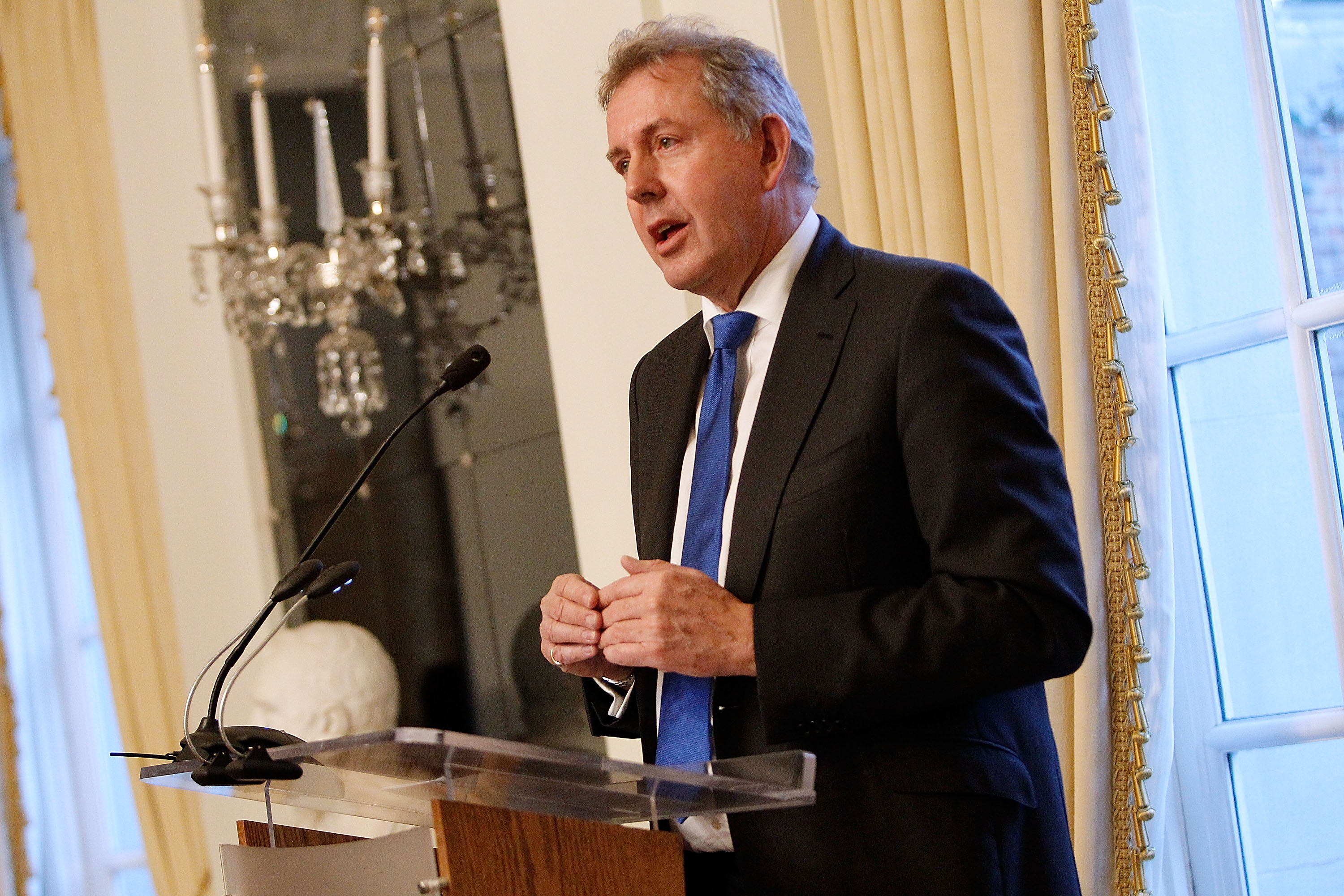Most diplomats don't think U.K. ambassador Kim Darroch did anything wrong. But they also think the game has changed.


A free daily email with the biggest news stories of the day – and the best features from TheWeek.com
You are now subscribed
Your newsletter sign-up was successful
Kim Darroch was just doing his job. That's the interpretation of several other diplomats and ambassadors, at least.
Darroch, who announced his resignation as the the United Kingdom's ambassador to the United States on Wednesday, has been mired in controversy ever since the memos he sent back to London describing President Trump as "insecure" and "incompetent" were leaked. Trump blew a fuse over the supposedly-private insults, dismissing Darroch as a "very stupid guy."
But those who share or used to share Darroch's profession have mostly backed him up, calling him "blameless" in the whole saga. "He doesn't do the prime minister or the foreign minister any favors if he doesn't give his honest take or his honest advice," Richard Haass, president of the Council on Foreign Relations and a former U.S. diplomat, told The Guardian. "It's not his fault the cable leaked."
The Week
Escape your echo chamber. Get the facts behind the news, plus analysis from multiple perspectives.

Sign up for The Week's Free Newsletters
From our morning news briefing to a weekly Good News Newsletter, get the best of The Week delivered directly to your inbox.
From our morning news briefing to a weekly Good News Newsletter, get the best of The Week delivered directly to your inbox.
Multiple ambassadors told The New York Times that Darroch's cables were far from out of the ordinary. Gérard Araud, who recently retired as the French ambassador, said he sent similar messages back to Paris. He said he was just extra careful, sending them in an even more confidential manner than Darroch because he "knew nothing would remain secret." One anonymous ambassador who is still serving told the Times that "it could have been any of us."
Now, though, after the Darroch fiasco it might be time for ambassador's to switch things up, at least while Trump remains in the Oval Office, The Guardian reports. The idea that they can communicate with their foreign ministries honestly about their jobs might be a thing of the past. "I think it's going to be a very big change in the way diplomacy is conducted," said Sally Quinn, a former journalist and socialite who attended Darroch's parties in Washington. Read more at The Guardian and The New York Times. Tim O'Donnell
Editor's note: A previous version of this story misspelled Richard Haass's name; the article has been updated to reflect his comments to The Guardian. We regret the error.
A free daily email with the biggest news stories of the day – and the best features from TheWeek.com
Tim is a staff writer at The Week and has contributed to Bedford and Bowery and The New York Transatlantic. He is a graduate of Occidental College and NYU's journalism school. Tim enjoys writing about baseball, Europe, and extinct megafauna. He lives in New York City.
-
 Crisis in Cuba: a ‘golden opportunity’ for Washington?
Crisis in Cuba: a ‘golden opportunity’ for Washington?Talking Point The Trump administration is applying the pressure, and with Latin America swinging to the right, Havana is becoming more ‘politically isolated’
-
 5 thoroughly redacted cartoons about Pam Bondi protecting predators
5 thoroughly redacted cartoons about Pam Bondi protecting predatorsCartoons Artists take on the real victim, types of protection, and more
-
 Palestine Action and the trouble with defining terrorism
Palestine Action and the trouble with defining terrorismIn the Spotlight The issues with proscribing the group ‘became apparent as soon as the police began putting it into practice’
-
 Nobody seems surprised Wagner's Prigozhin died under suspicious circumstances
Nobody seems surprised Wagner's Prigozhin died under suspicious circumstancesSpeed Read
-
 Western mountain climbers allegedly left Pakistani porter to die on K2
Western mountain climbers allegedly left Pakistani porter to die on K2Speed Read
-
 'Circular saw blades' divide controversial Rio Grande buoys installed by Texas governor
'Circular saw blades' divide controversial Rio Grande buoys installed by Texas governorSpeed Read
-
 Los Angeles city workers stage 1-day walkout over labor conditions
Los Angeles city workers stage 1-day walkout over labor conditionsSpeed Read
-
 Mega Millions jackpot climbs to an estimated $1.55 billion
Mega Millions jackpot climbs to an estimated $1.55 billionSpeed Read
-
 Bangladesh dealing with worst dengue fever outbreak on record
Bangladesh dealing with worst dengue fever outbreak on recordSpeed Read
-
 Glacial outburst flooding in Juneau destroys homes
Glacial outburst flooding in Juneau destroys homesSpeed Read
-
 Scotland seeking 'monster hunters' to search for fabled Loch Ness creature
Scotland seeking 'monster hunters' to search for fabled Loch Ness creatureSpeed Read
